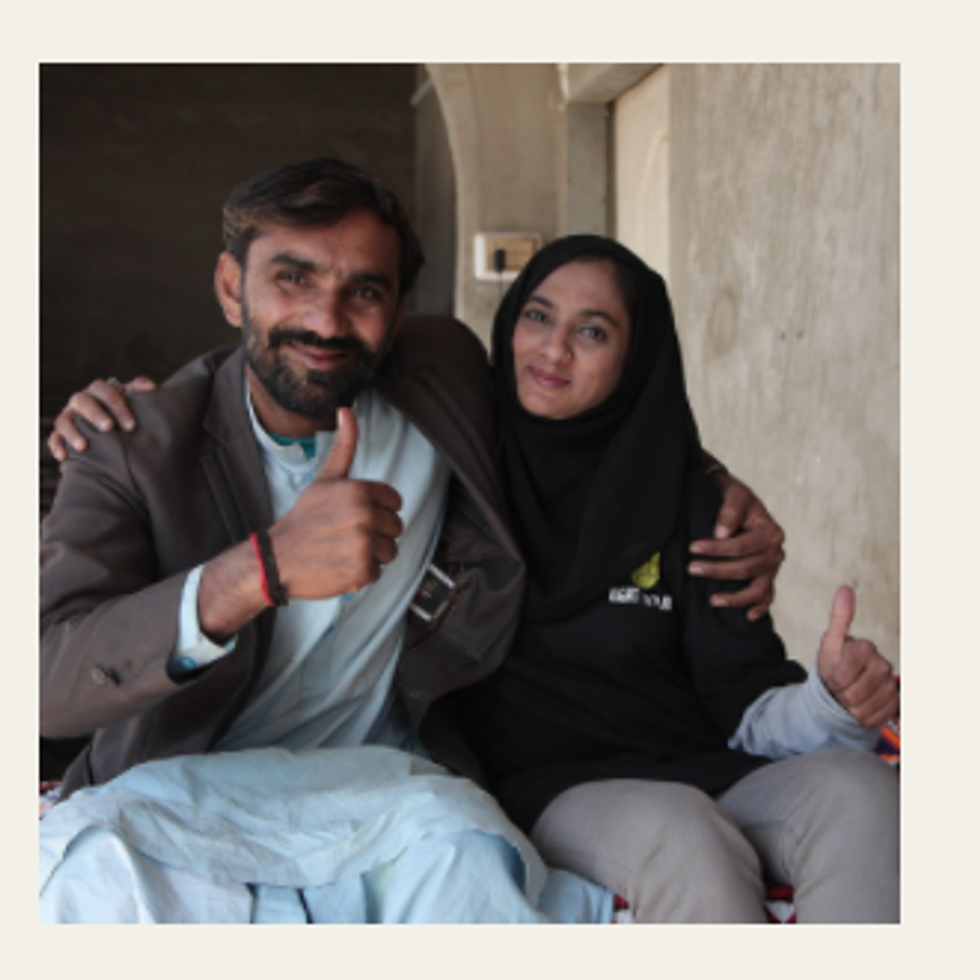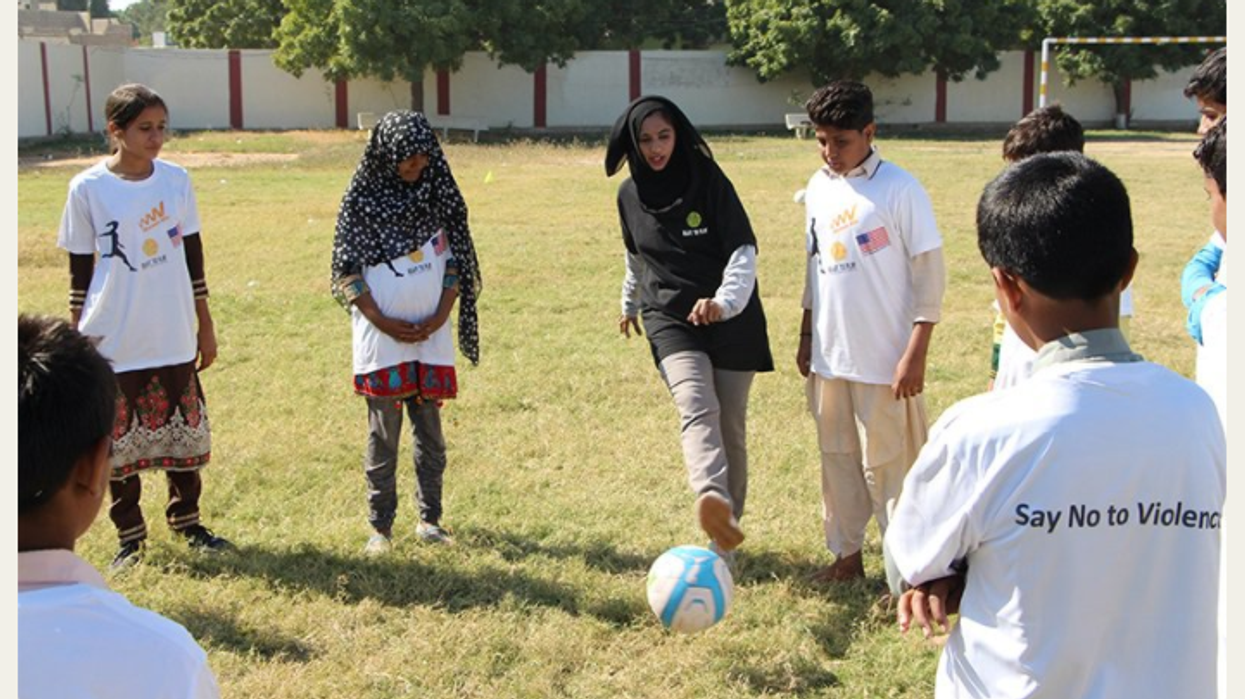#SAVEHERSEAT IS RAISING FUNDS FOR EDUCATION
By Sana Mahmud
Right To Play Project Manager Pakistan
MALALA YOUSAFZAI, the Nobel Prize winner, is known for her campaigning to protect the rights of every girl in Pakistan and worldwide.
Each Pakistani girl has aspirations and potential that can only be brought to fruition when nurtured, away from the shadow of child-marriage, exploitation and abuse. Pakistan has the fifth fastest growing population in the world. Half of its 220 million people are women, of whom 34.53 per cent are girls under the age of 14.
Unfortunately, patriarchal values and political instability have resulted in 32 per cent of those school-aged girls currently being out of education. If they were to attend, only 41 per cent of them would progress past the sixth grade.
But what are girls doing when they are not in their school seats? They are taking up chores around the house or assisting their parents with work. Too often, they are on the path to becoming child-brides and, eventually, young teenage mothers.
In 2017, nearly 40 per cent of the population of 20-year-old girls in Pakistan were married before turning 18. When they marry, they are expected to take care of their newly formed household and to honour the wishes of their in-laws. In Pakistan, marriage is not only the union of two people, but of two families. Thus, there are many tasks handed to every girl child. They will also be expected to promptly start a family, despite the risks associated with under-aged childbearing.
Many girls and women are victims of domestic abuse and other gender-related violence, the statistics and predictions are grim. They speak about millions of childhoods lost to gender-inequalities, poverty and harmful traditional practices. They are incapable of representing the pictures we associate with girlhood. They make us forget that under the marriage gowns there are ten-year-old girls, eager to have fun in the playground and attend school to learn about the world that awaits them.
Right To Play has been working in Pakistan since 2008 to protect, educate and empower children. We use the power of play to connect with children and provide them with valuable life-skills. Our experience has showed us children understand the world through play. They score points to learn about team effort. They run across fields and discover determination. They play with tiny cups and plates and learn about food and nutrition.
Inside the classroom, games help children to actively engage in their lessons, enhancing their learning. Outside the classroom, they engage in play-based activities and sport to gain critical life skills.
Play can help overcome gender-inequality because children and their families can see how boys and girls are equally capable when they watch them all collaborating to reach a goal. It can also teach girls to be confident and aware of their rights, helping them avoid domestic abuse and violence, Pakistan has provided us with hundreds of inspirational stories of girls who use play to stand up to inequality. As Fatima, a girl from Sindh who discovered her force and is now leading the path for more girls to access education and learn outside the classroom. In her province, few girls attend school and there is a high prevalence of child-marriage. Families believe that girls hold the household honour and fear that they will be disgraced by engaging with boys on their way to school. They avoid the risk by keeping them at home until wedded.
Fatima is the fourth sibling out of 10, from a rural village 40km from Thatta. She grew up seeing her brothers go out to the dirt courtyard to play with other boys. She had always wanted to go out and score those goals, but it was deemed to be a manly space.

When Right To Play started looking for coaches, she jumped at the opportunity. Being a coach meant she could lead games and activities for the children in her community, while also playing and developing leadership and communication skills.
Fatima felt passionate about using play to help girls do better at school and to learn if they were out of education. However, she faced backlash in her community. A local woman used to stand in her doorway as Fatima walked to her job and hurl misogynistic insults at her, telling her that she was doing wrong and that teaching sports was not suitable for a woman. But thanks to the support of her close family and Right To Play, she continued to be a change-maker.
Today Fatima is a leader in her community, families approach her and ask for her guidance to raise their children and girls look up to her as role model. She is enabling girls to experience childhood at its fullest, learning and exploring instead of being secluded and forced into marriage.
Right To Play is running the #SaveHerSeat campaign to raise funds to get girls back into education as the disruptions caused by the pandemic have worsened their circumstances. We can all be in the girls’ team, unleashing the power of girls like Fatima in Pakistan and around the globe.
The Save Her Seat fundraising campaign runs until the end of December.
To make a donation, see https://www.righttoplay.org.uk/en-uk/national-offices/national-office-uk/landing-pages/save-her-seat-uk/




